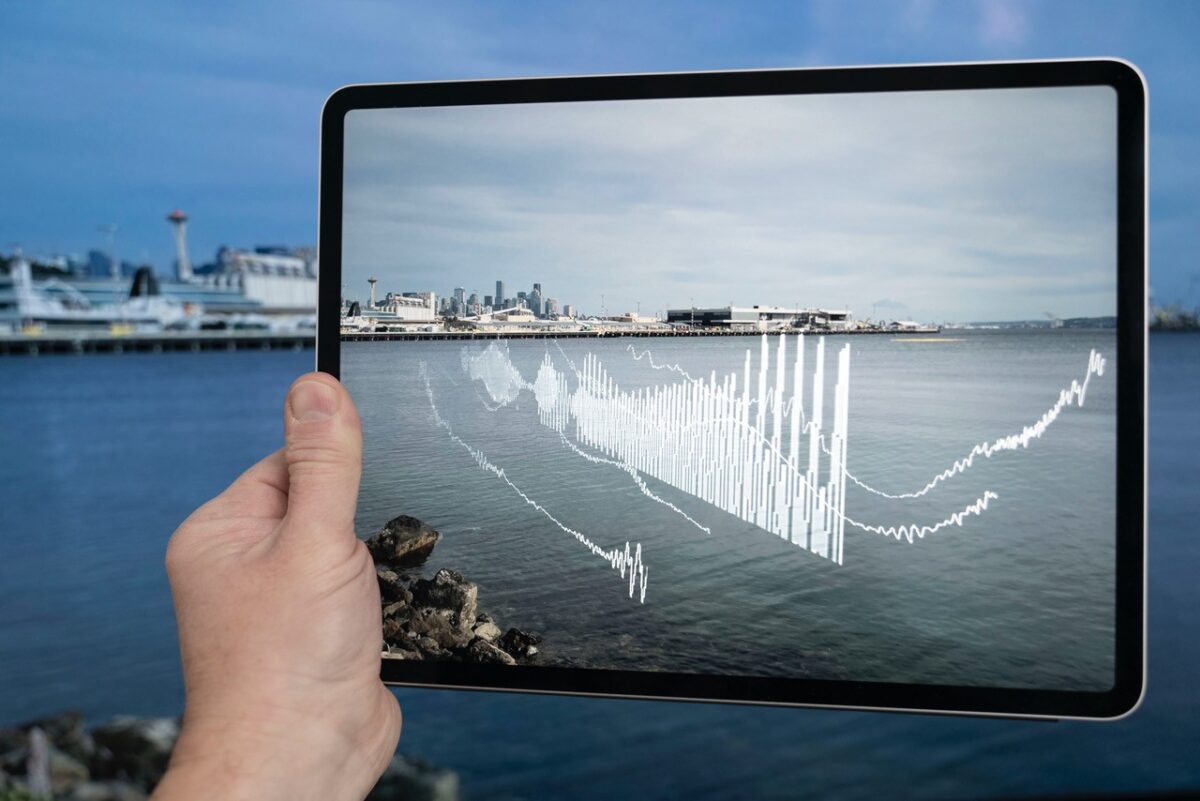Carrie Bodle speaks at the International Symposium on Electronic Art (ISEA) in Paris

IAS faculty member Carrie Bodle will be presenting an artist talk at the 28th International Symposium on Electronic Art (ISEA) held at the Forum des Images in Paris, France on her in-progress work SeaCycles. Her talk on May 18, 2023 will discuss the artwork, SeaCycles, which is an immersive augmented reality sound and visual art installation responding to patterns of change in the ecology of the Puget Sound region. Viewers of the artwork engage in a data augmented exploration leading to a sensual experience and deeper appreciation of larger environmental activity and place. The artwork consists of mobile-device based augmented reality elements that situate the viewer in the face of a larger ecosystem which is undergoing irreversible change as result of human intervention.
From the ISEA website: “ISEA, a major event on the global electronic art scene, aims to strengthen the dialogue between artists, researchers, engineers, designers and entrepreneurs from the cultural and creative industries who participate in the advances of research and creation. This multidisciplinary event is open to both specialists and the general public. The 28th edition of ISEA, co-organised by Le Cube Garges and the École des Arts Décoratifs, will take place in Paris at the Forum des images from 16 to 21 May 2023, as well as through an artistic programme spread over 80 partner cultural venues throughout France in spring-summer 2023. Following an international call for entries, more than 1400 applications from 70 countries were examined by an artistic and scientific committee of 200 international experts. The theme of this edition is Symbiosis. In this time of global health, ecological, economic and democratic crisis, symbiosis is a polysemous notion that allows us to explore in a transversal and interdisciplinary way the mutations and transformations underway in the digital age, to question the meaning supposedly given to progress, especially in the current environmental and health context, and to imagine possible and viable futures for our planet and our ecosystems.”
